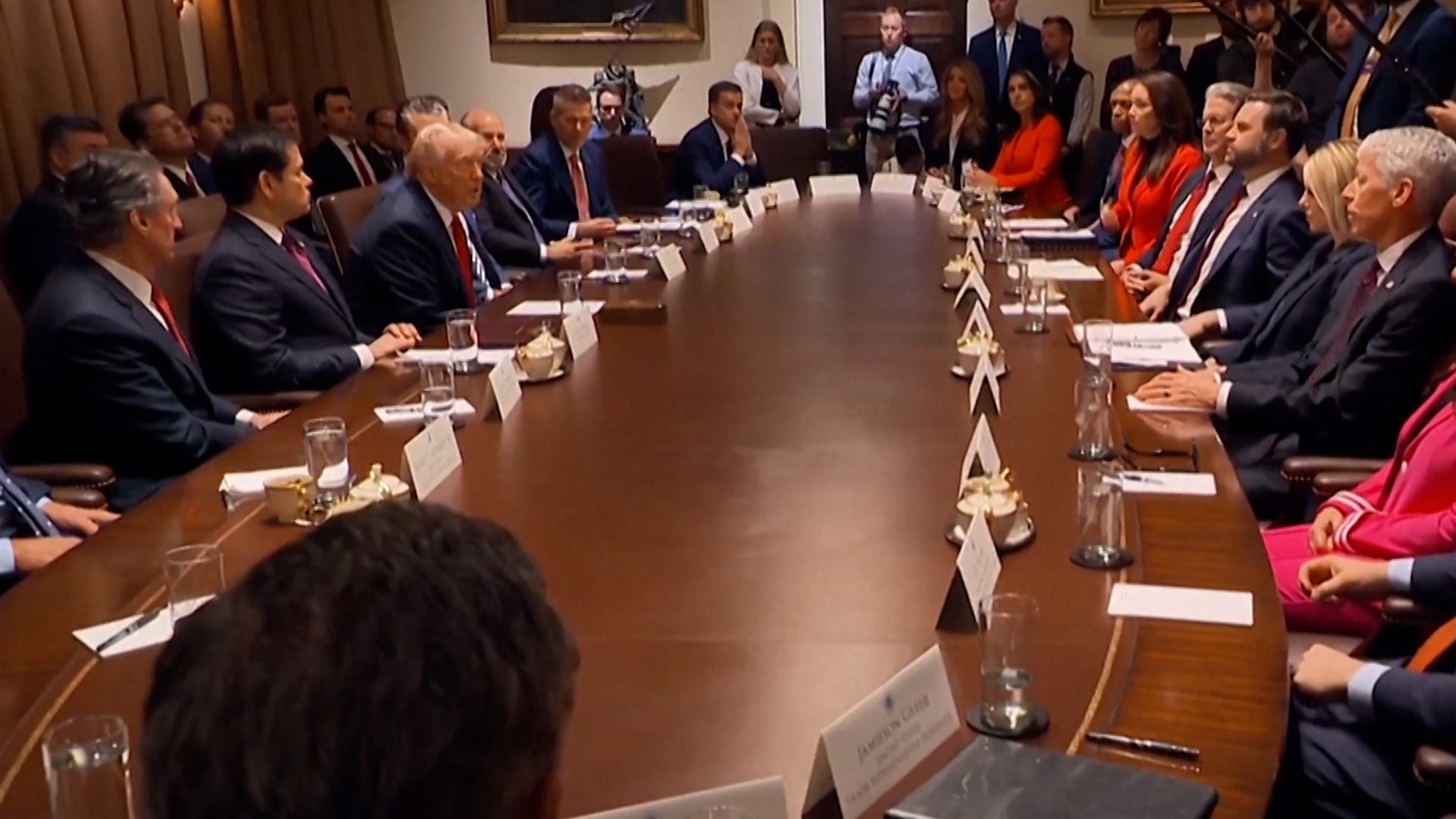Will prices go up? How Trump's 25% tariffs on the EU could affect your wallet

President Donald Trump's plans for reciprocal tariffs and to impose 25% tariffs on goods from the European Union are likely to provoke retaliatory action from the group's 27 member countries and could raise prices for American consumers.
Trump announced the sweeping tariffs during a Cabinet meeting in February in which he said the EU was created to "screw" the United States. He said the EU has taken advantage of the U.S., adding: "They don't accept our cars. They don't accept, essentially, our farm products and we accept everything of them.” The announcement came as Trump continued to threaten tariffs on goods from Mexico and Canada, and in the wake of previously imposed 10% tariffs on imports from China.
Neil Saunders, a retail analyst at the research and analytics firm GlobalData, said whether someone agrees with tariffs or the Trump administration's approach or not, it is true "the EU is pretty protectionist and the U.S. is very open as a market." He added, however, that the tariffs will probably hurt U.S. consumers and the EU.
"There is something to be said for leveling the playing field," Saunders told Paste BN. "If the tariffs happened and went ahead, it would be extremely disruptive for Americans, as well as painful for Europe."
Goods imported to the U.S. from the EU's 27 member countries totaled $605.8 billion in 2024, according to the Office of the U.S. Trade Representative. If imposed, Trump's tariffs will put a tax on those products American companies purchasing them will need to pay. The companies are likely to cover at least some of that extra cost by raising prices for their customers immediately, or gradually over time. Economists generally agree tariffs increase inflation.
Trump's 25% tariffs on the EU could affect many products. Saunders highlighted their likely effect on high-end goods and luxury fashion brands such as Louis Vuitton, Chanel and Hermes. Other more affordable brands like the clothing company Zara, which is based in Spain, could also be affected.
Saunders explained that if the tariffs apply to items used in manufacturing such as plastics or rubber, they probably will disrupt supply chains. He gave the examples of how imported organic chemicals are used to make household cleaning products and how leather is used to make items including sofas and cars.
"It's one of those things where the disruption is really only measurable if the tariffs (are) in place because there are so many hidden bits to it," Saunders said.
The EU said shortly after Trump's announcement that it would respond "immediately" and "firmly" to Trump's "unjustified" trade barriers. It could respond with a variety of measures, but they probably would include retaliatory tariffs on common U.S. exports to the EU, Saunders said.
What items from the European Union could be hit by Trump's tariffs?
The following common imports to the United States from the EU, listed in order of volume, could fall under Trump's tariffs, according to The GlobalStat database:
- Mechanical appliances and electrical equipment
- Pharmaceutical products
- Vehicles and aircraft
- Optical instruments
- Agricultural and food products, which according to the European Commission, include:
- Wine
- Spirits and liqueurs
- Processed cereal-based foods such as breakfast cereals or pasta and other miscellaneous processed foods
- Beer and cider
- Dairy products
- Organic chemicals
- Oil, gas and coal
This story was updated to correct a typo.
Reach Rachel Barber at rbarber@usatoday.com and follow her on X @rachelbarber_